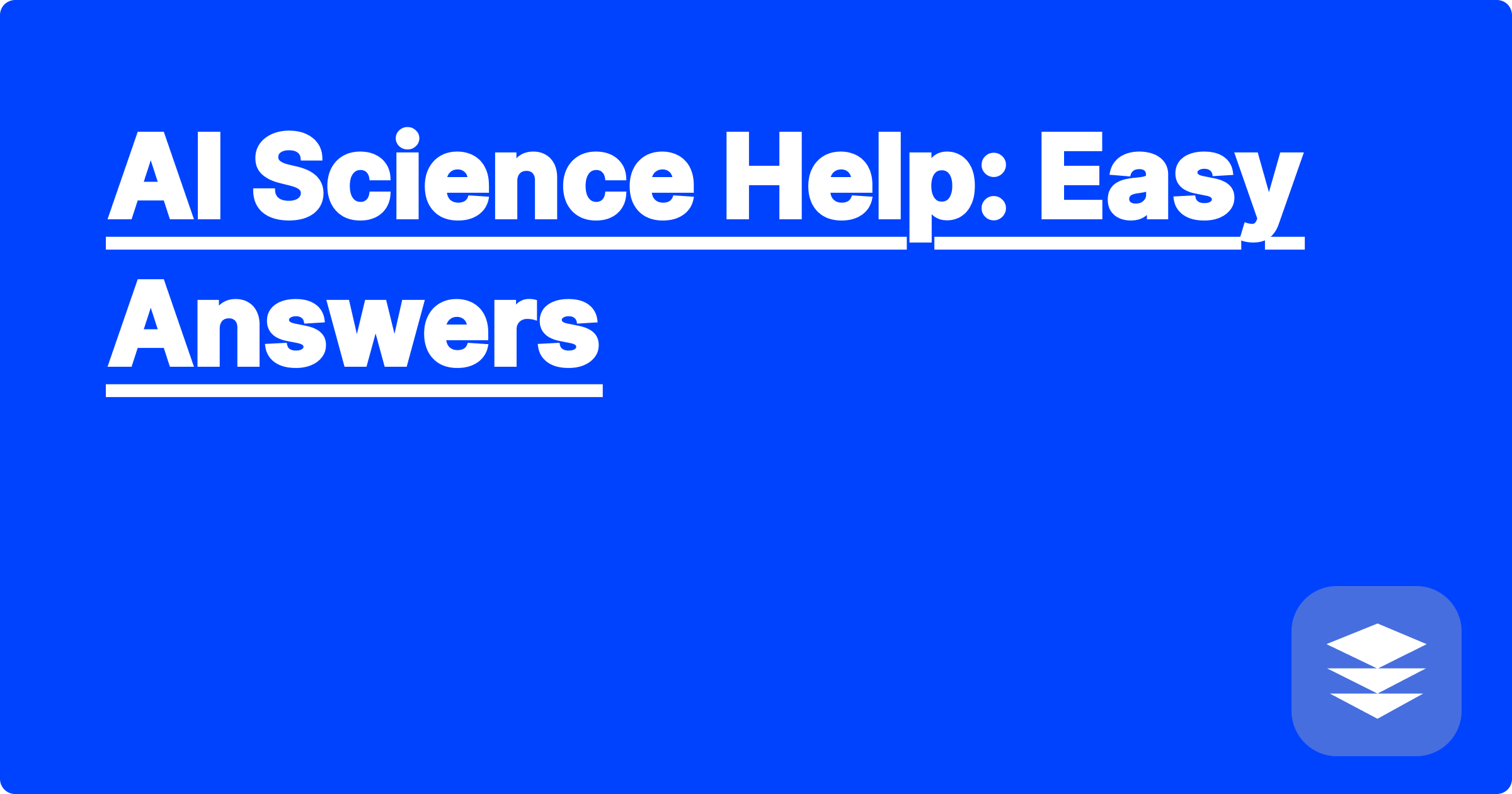
STEM fields are notorious for their complex problems and rigorous coursework. Students and researchers alike often face challenges in understanding intricate concepts, analyzing large datasets, and efficiently completing assignments. Artificial intelligence offers a powerful set of tools to navigate these challenges, providing assistance with everything from literature reviews to complex calculations. AI can empower STEM learners to grasp difficult material more easily and accelerate research progress.
This new era of AI-powered learning and research is particularly relevant for STEM students and researchers. The ability to quickly access information, generate code, and explore different solution approaches can significantly enhance productivity and understanding. By leveraging AI tools effectively, STEM professionals can gain a competitive edge and contribute to groundbreaking discoveries. This blog post will delve into the practical application of AI tools like ChatGPT, Claude, and Wolfram Alpha to address specific STEM challenges, offering a step-by-step guide to implementation and highlighting practical examples.
Embarking on a research project or tackling a challenging assignment often begins with formulating a clear research question. However, defining a precise and relevant question can be difficult, especially when dealing with complex scientific concepts. Students and researchers often struggle to narrow down their focus and articulate a question that is both investigable and contributes meaningfully to the existing body of knowledge. This initial stage of framing the research question is crucial as it sets the direction for the entire project. A poorly defined question can lead to wasted time and resources, while a well-crafted question can unlock valuable insights.
Defining a focused research question in STEM fields requires a deep understanding of the subject matter and the current research landscape. It involves identifying knowledge gaps, formulating hypotheses, and considering the feasibility of different research approaches. For example, a student studying climate change might be interested in the impact of rising sea levels on coastal communities. However, this broad topic needs to be refined into a specific research question. Instead of simply asking "What is the impact of rising sea levels?", a more focused question might be "How does the projected sea level rise by 2050 affect the infrastructure of coastal cities in the Pacific Northwest?". This refined question clearly specifies the geographical area, the timeframe, and the specific impact being investigated, making it a more manageable and impactful research question.
AI tools can significantly assist in formulating strong research questions. ChatGPT and Claude, for example, can be prompted with broad research interests and then guided to generate more specific and relevant questions. By providing context, keywords, and related research areas, users can leverage these AI models to explore different perspectives and refine their initial ideas. Wolfram Alpha, with its computational knowledge engine, can help define parameters and explore the quantitative aspects of the research question. It can provide data on existing research, identify relevant variables, and even suggest potential methodologies for data analysis.
Begin by providing the AI tool with background information on your general area of interest. For example, you might tell ChatGPT, "I'm interested in researching the effects of microplastics on marine ecosystems." Next, engage in a conversational exchange with the AI, asking it to suggest specific research questions related to this topic. You can further refine the suggestions by specifying geographical locations, species of interest, or specific types of microplastics. As the AI generates potential research questions, evaluate their feasibility and relevance to your overall research goals. You can also use Wolfram Alpha to explore the availability of data related to these questions, ensuring that your chosen research question is practically investigable.
Suppose a student is interested in exploring the relationship between air pollution and respiratory diseases. They could input into ChatGPT: "Generate research questions about the link between air pollution and asthma in urban areas." ChatGPT might then suggest questions like: "What is the correlation between particulate matter 2.5 levels and asthma hospitalization rates in major US cities?" or "How do different air pollution mitigation strategies impact asthma prevalence in low-income urban neighborhoods?". Wolfram Alpha can then be used to access data on PM2.5 levels in specific cities, providing a starting point for quantitative analysis. Another example could involve a researcher investigating the efficiency of different solar panel materials. They could use Wolfram Alpha to compare the energy conversion rates of various materials under different light intensities and temperatures, informing their research question about the optimal material for specific environmental conditions.
Integrating AI tools into your STEM workflow requires a strategic approach. Don't rely solely on AI-generated content; always critically evaluate the information and ensure its accuracy. Use AI as a tool to enhance your understanding, not as a replacement for your own critical thinking. When using AI for literature reviews, cross-reference the suggested sources with reputable databases and academic journals. Document your use of AI tools transparently in your work, acknowledging their contribution to the research process. By combining the power of AI with your own intellectual curiosity and rigorous analysis, you can significantly enhance your learning and research outcomes.
To maximize the benefits of AI in your STEM journey, start by exploring the different AI tools available and identifying those that best suit your specific needs. Experiment with different prompting techniques and learn how to effectively guide the AI to generate relevant and insightful information. Develop a critical mindset when evaluating AI-generated content, always questioning its validity and seeking corroborating evidence. Embrace AI as a powerful ally in your quest for knowledge and innovation, using it to unlock new possibilities and accelerate your progress in the exciting world of STEM.
AI Lab Assistant: Boost Efficiency
AI Math Tutor: Solve Any Problem
AI Research Tool: Data Insights